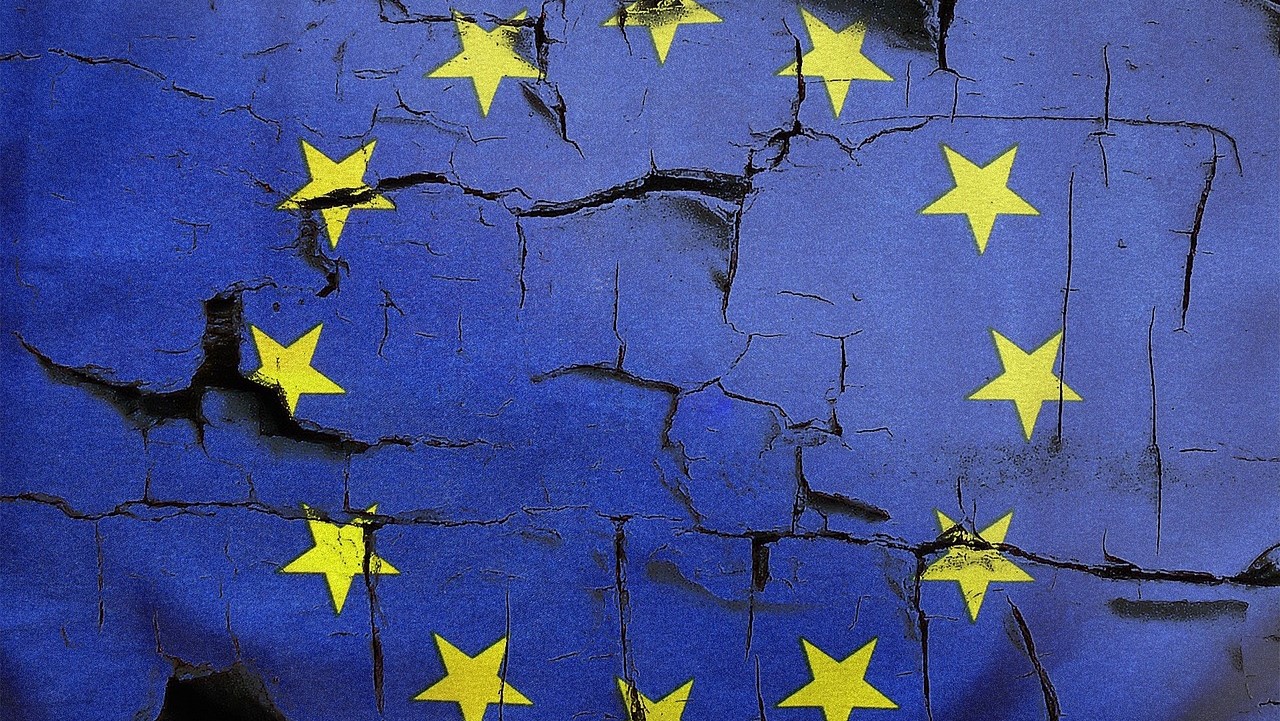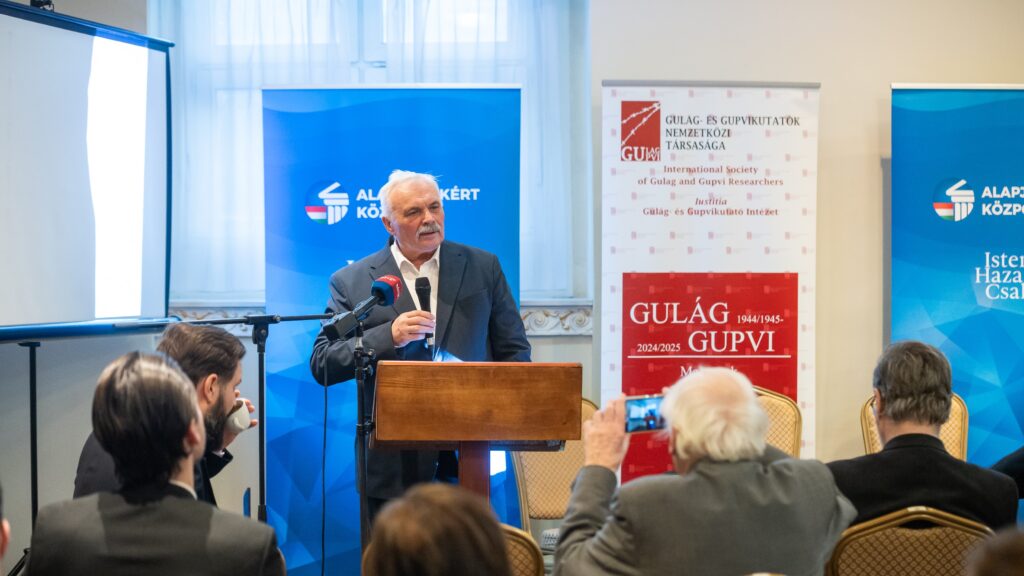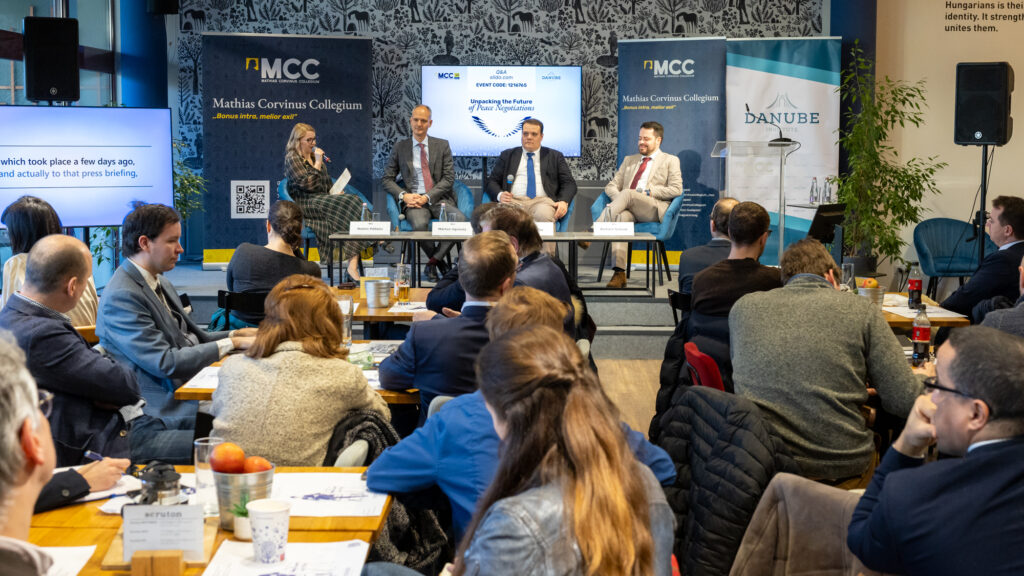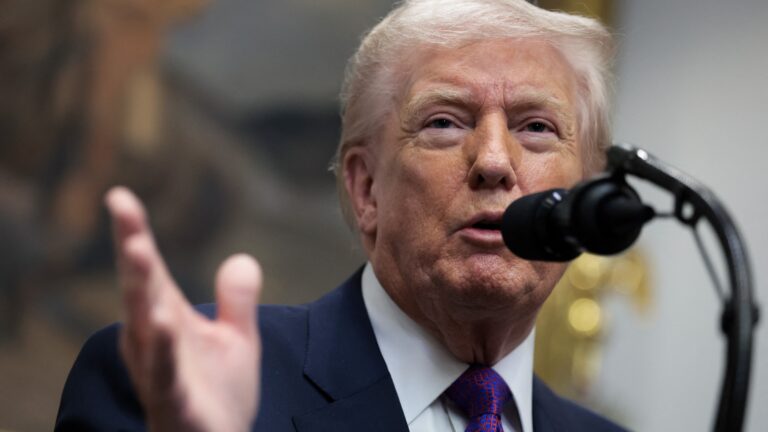On Europe Day, the 9th of May, we celebrate European peace and unity. In 1950 on that day, the French Minister of Foreign Affairs, Robert Schuman, published his famous declaration proposing a new form of European cooperation. Schuman promoted an alliance of European nations for the sake of peace, or even world peace. He believed that in order to protect world peace, creative efforts are needed proportionate to the looming dangers; and the contribution of a well-organized and lively Europe is indispensable.
The Schuman Declaration was published 75 years, and many generations ago. During the decades, European integration has successfully reinvented itself several times. The European Union is currently in another fundamental transformation process. The gravity of the changes is unparalleled since the fall of the Iron Curtain. These changes will not be completed in a matter of days, but our decisions today will clearly determine the future of Europe.
However, it is not obvious by whom and how these decisions will be made. Some say that the way ahead is predetermined by the characteristics of European integration. The principle of ‘ever closer Union’ has been accepted by all Member States, thus relinquishing the right to decide the depth and strategic direction of cooperation. Member States may pull the oars on the big European galley, but the rudder is controlled by others. If someone refuses to pull the oar, well, there are tested solutions for that, and at the end of the day, you can jump ship any time: the vast ocean is waiting for you…
In the past two decades, the European Union has turned from a community of values into a power centre and from an internal market into a proto-state. It has happened without the explicit political authorization of the Member States and European citizens, against the letter and spirit of the Treaties, while undermining the constitutional structures and institutions of the Member States. Today, the main line of division in European politics lies between those who support or condone this process and those who oppose it.
‘In the past two decades, the European Union has turned from a community of values into a power centre and from an internal market into a proto-state’
According to the federalists, it is only natural that decisions, as well as the tools and resources required for their implementation, are transferred to a supranational level, resulting in the considerations for those decisions being also gradually detached from national interests. According to the sovereigntists, however, national interests and considerations must not be relinquished and must remain the driving force behind European cooperation. Federalists believe that the real communities of European constituents can be replaced by a vague European public opinion. Sovereigntists are convinced that European decisions still require political authorization that can only result from the democratic mandate of national communities. Sovereigntists are, by definition, democrats because, in the absence of meaningful European checks and balances, they can only rely on the people of Europe against the elitism of federalists and the bureaucracy of European institutions.
Federalist working methods have not changed since the Schuman Declaration. Take a grand objective to inspire joint action for a while. Preferably, this objective can only be reached through the extension of EU competences and can also be used as a pretext to interfere with competences that undisputedly belong to Member States. The objective must have a strong moral component or value basis so that proponents can avoid substantial discussions with opponents. It will suffice to interpret criticism of specific measures as the denial of European values, which will justify the expulsion of opponents from the European political community. The process might require the reinforcement of the European preventive and repressive toolbox, which is in itself already a significant achievement for the purposes of constitutional federalism. It is equally important for the chosen objective not to be covered by sufficient EU and Member State budgetary resources so that fiscal room can only be provided through innovative solutions, justifying further steps towards fiscal federalism.
The federalist project always needs a political instrument or platform. It seems that the now openly political European Commission, with the support of the majority in the European Parliament, has just found the perfect one: Ukraine’s accelerated EU accession process.
Since February 2022, the European Union has spent over 140 billion euros to support Ukraine, in large part financed by loans taken out specifically for this purpose. A reinforced European defence policy, including military support to Ukraine according to the majority view, has broken the taboo of directly financing military expenditure through the Union budget. The intention to support Ukraine and weaken Russia has resulted in sanctions as well as trade and energy security measures that present an unprecedented interference with Member States’ energy policies. It has become business as usual to use instruments originally designed to protect the Union’s values and financial interests for political blackmail to break the will of Member States opposing certain measures related to Ukraine. Under the pretext of support for Ukraine, the toolbox of constitutional and fiscal federalism has been strengthened with unprecedented speed, the covert expansion of EU competences has continued, and the political room for Member States has been further limited.
But why would federalists stop halfway? All this is nothing compared to the opportunities offered by the EU membership of Ukraine for the supporters of a United States of Europe. And these opportunities go well beyond the fact that with the membership of Ukraine, the EU would acquire a big Member State that can be hand-controlled by Brussels, as it is now in selective default and will be for the foreseeable future, so its daily survival depends on financial transfers approved by the Commission.
‘With Ukraine’s membership, the geopolitical conflict behind the war between Russia and Ukraine will not disappear’
Ukraine’s accession raises the most fundamental questions concerning institutional balance and decision-making procedures within the European Union. The federalist agenda is enlargement and reform. There is consensus among EU institutions and big Member States that Ukraine’s accession must proceed in parallel with the discontinuation of unanimity decision-making and the reinforcement of the toolbox of political and ideological pressure. It is also obvious that the current EU budgetary structure would become unsustainable with Ukraine’s membership. The cohesion and common agricultural policies as we know them will be gone, together with the few remaining tools at the disposal of Member States to influence and control the implementation of the EU budget. But all this would still be insufficient to maintain fiscal stability, taking into account that from 2029 onwards, financial support to Ukraine might consume one-fourth and debt service might consume one-fifth of the EU’s annual budget. Consequently, the only remaining option will be a continuous rolling common debt, which means a de facto fiscal union.
Ukraine’s accession also undermines some core aspects of Member States’ sovereignty considered untouchable until now. With Ukraine’s membership, the geopolitical conflict behind the war between Russia and Ukraine will not disappear; it will be transformed into a direct conflict between the EU and Russia. Ukraine will obviously initiate, with the support of EU institutions, the activation and then reinforcement of existing EU solidarity mechanisms. This will entail, first, the strengthening of the European defence industrial base, followed by common procurement, later common research and development, joint planning and capabilities, and finally, joint command structures and joint control. Common defence will, of course, require a genuine supranational foreign policy as well. A common foreign, defence and fiscal policy means a United States of Europe.
‘A common foreign, defence and fiscal policy means a United States of Europe’
This is the federalist master plan behind Ukraine’s EU accession. Arguing against Ukraine’s EU membership is an argument against the United States of Europe and for a Europe of sovereign nations and Member States. For our Europe. Now is the time to make this argument. After Ukraine’s accession, it will be too late.
Related articles:
This article is the translated version of the original, published on 9 May 2025 in the Hungarian daily newspaper Magyar Nemzet.







